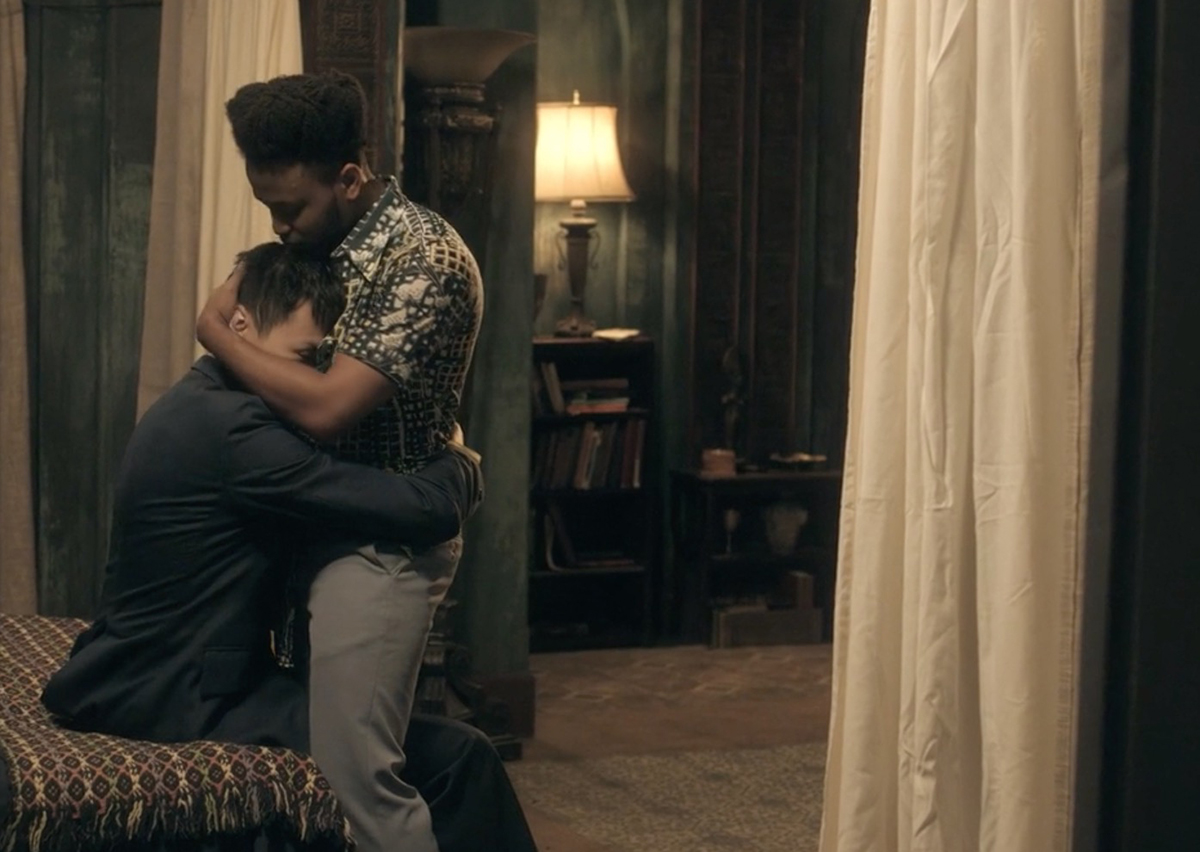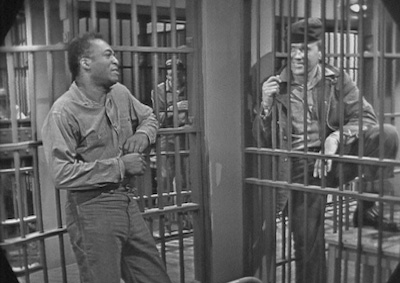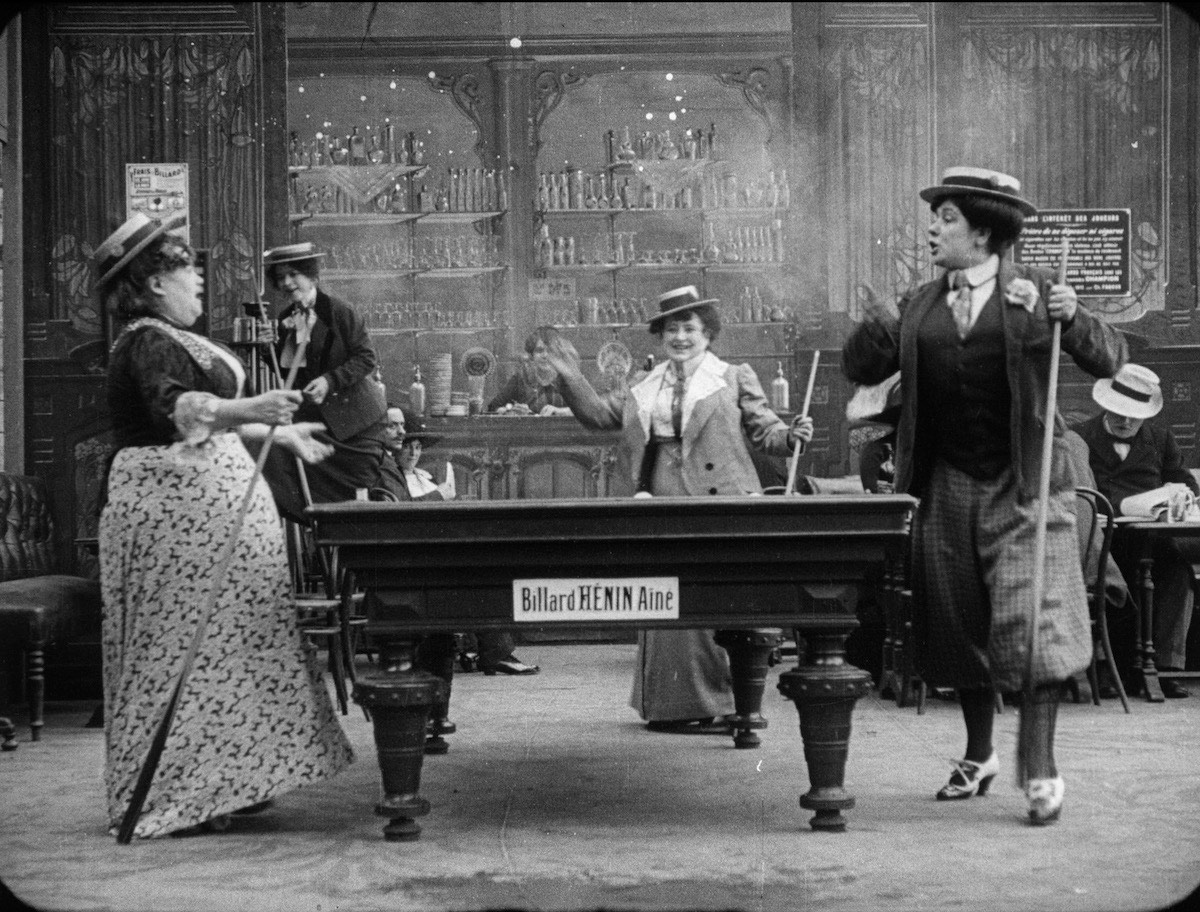Orphan Film Symposium shines light on forgotten media in weekend at Hammer Museum
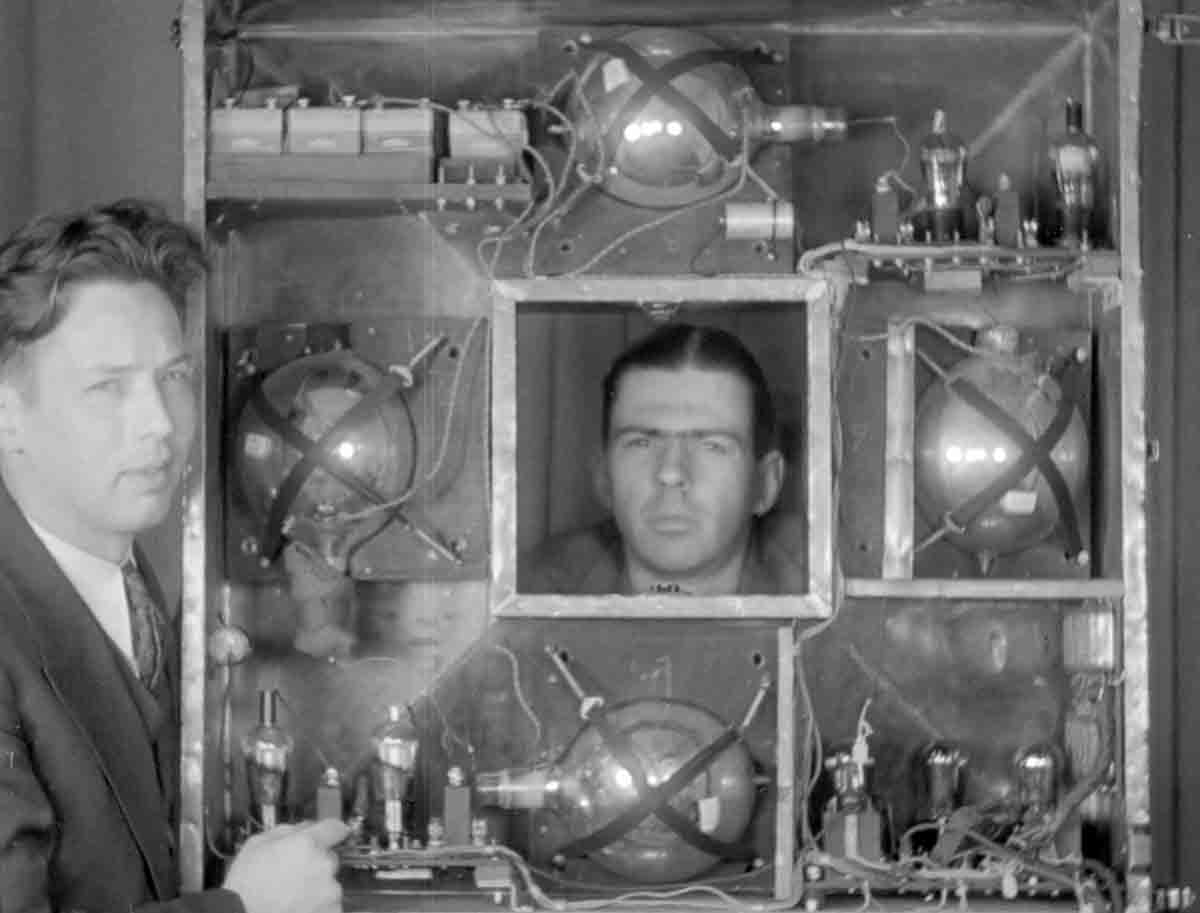
Two men are pictured in a Fox Movietone newsreel outtake named “Television Pictures.” The archive will present various rare TV programs beginning April 21. (Courtesy of Univ. of South Carolina, Moving Image Research Collections)
“ Orphan Film Symposium: All-Television Edition”
April 21 - 22
Billy Wilder Theater
Free
By Maya Vibhakar
April 20, 2023 8:47 p.m.
The Hammer Museum is opening a television time capsule this weekend.
On Friday and Saturday, the museum will be hosting the Orphan Film Symposium, a free event that focuses on media preservation. Led by Dan Streible, an associate professor of cinema studies at New York University and the founder of the Orphan Film Symposium, the series will be showcasing rare and restored television programs spanning eight decades of the 20th century. Unlike past conferences that focused on various types of media, Streible said this event will have an emphasis on television, specifically programs that have been abandoned either by the filmmaker or the rights owner, also known as orphan films.
“What they all have in common is they need an advocate to make sure they get preserved,” Streible said. “They need someone to develop the expertise to tell us how to understand them and how to make them comprehensible.”
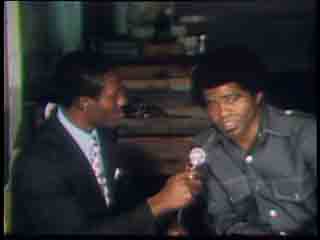
[Related: Film & Television Archive to screen alumni’s documentary on incarcerated women]
To bring awareness to media restoration and preservation, Streible said the Orphan Film Symposium has invited archivists from across the nation to present the television orphan films from their collections. Mark Quigley, a curator at the UCLA Film & Television Archive and presenter at the Orphan Film Symposium, said the speakers include archivists from the National Museum of African American History and Culture, the Library of Congress, the Smithsonian and various university archives. The material presented by these speakers ranges from early TV testing to newsreels about the development of television to kinescope recordings, he said.
There is also a focus on Black history, Chicano TV and women in television, Quigley said, including a rare TV interview with musician James Brown and content that Chicano artist Harry Gamboa Jr. created for public-access television in the ’80s. Even though these pieces of media offer distinctive historical value, Quigley said the television programs often go unseen by the public because there is no venue in which to showcase them.
“There’s so much to learn from the past that we haven’t even been able to glean yet because the materials haven’t been accessible,” Quigley said. “There’s all kinds of content, especially content produced by marginalized communities, that didn’t have the same type of exposure that is extremely historically important.”
Josslyn Luckett, an assistant professor of Cinema Studies at NYU and presenter at the Orphan Film Symposium, said much of the footage showcased is considered to be rare, especially if it was produced earlier in the 20th century. This is the case with early public broadcasts, she said, since television networks often taped over old programs or destroyed old tapes believed to have little monetary value.
“So many really amazing and remarkable historical documents were lost altogether or stored inappropriately,” Luckett said. “The chance to find these pieces, no matter what kind of format they’re on (and) to preserve them is important so that we maintain this historical record.”
Ensuring that the television produced throughout the last century is protected has become even more essential in the recent decades, as the recent shift to digital content has made the future of television preservation uncertain, Streible said. While content stored on videotapes, disks or hard drives will always be accessible in a physical format, he said digital content is in far more danger of being deleted. Streible said with the sheer amount of content being produced today, there is no guarantee on how long certain television programs will remain in the digital space, especially if they eventually are not considered historically significant as today’s orphan films once were.
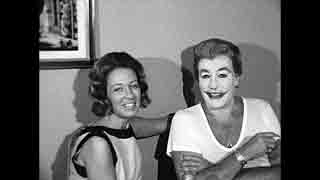
[Related: UCLA archive to host screening of works by Black TV pioneer Robert L. Goodwin]
Nevertheless, the Orphan Film Symposium aims to start a larger conversation around television preservation and its historical importance, Streible said. He also said he hopes that the eclecticism of the series will inspire modern artists to create art using archival material. Because of the series’ emphasis on minority creators, Luckett said she hopes that audiences will leave with a more expansive understanding of what diversity in television looked like over the last century. Additionally, Quigley said anyone interested in the Orphan Film Symposium should attend, as the event is intended to be enjoyed by everyone, not just academics and scholars.
“We invite people to come and be surprised by what they see,” Quigley said. “There’s going to be things that they never expected, things that they’re going to fall in love with. … It’s like digging up a time capsule.”



